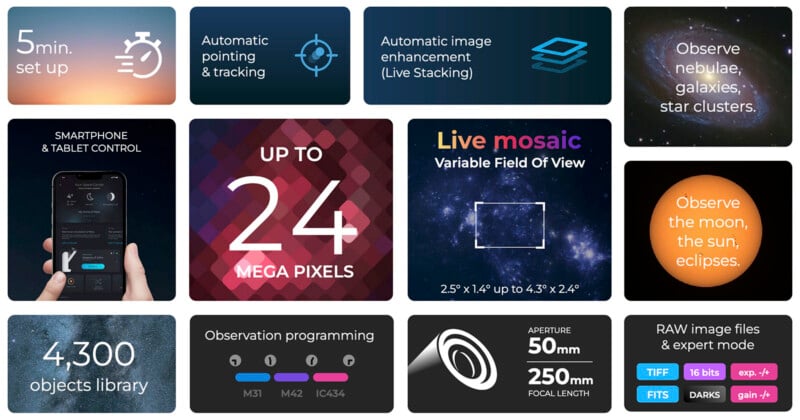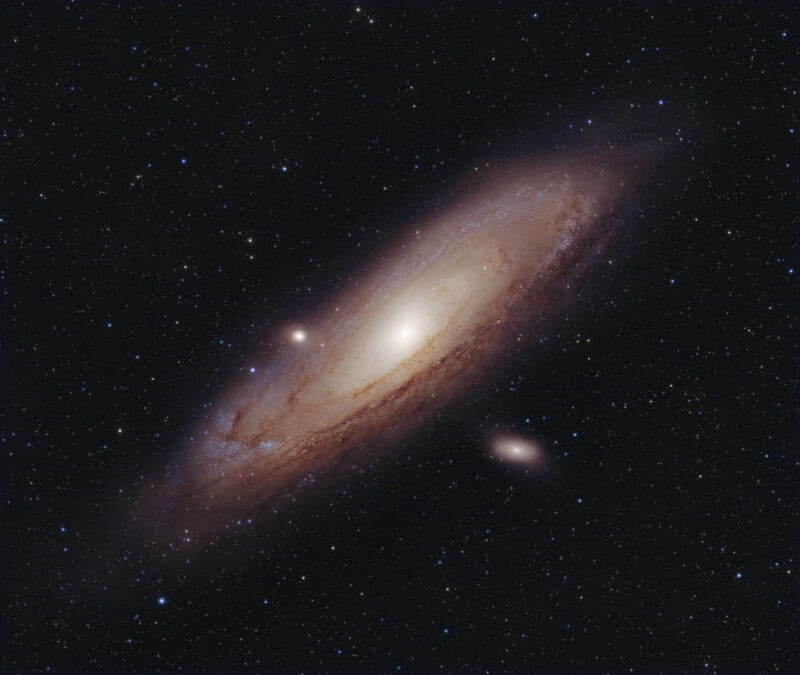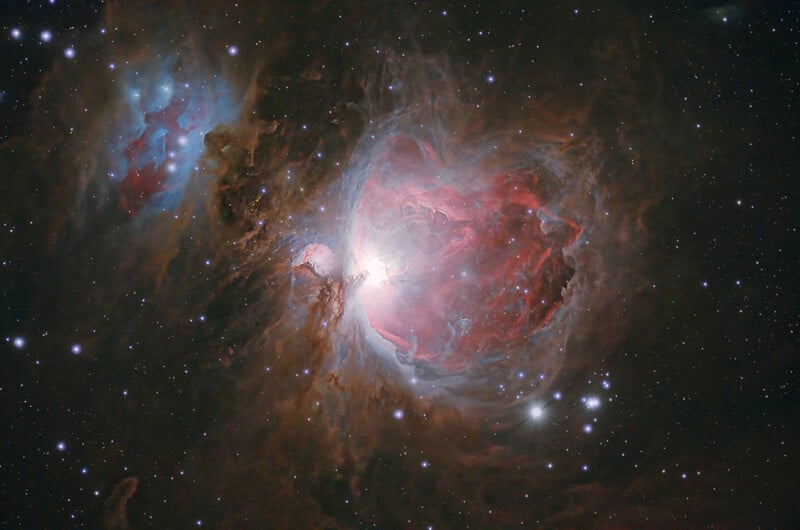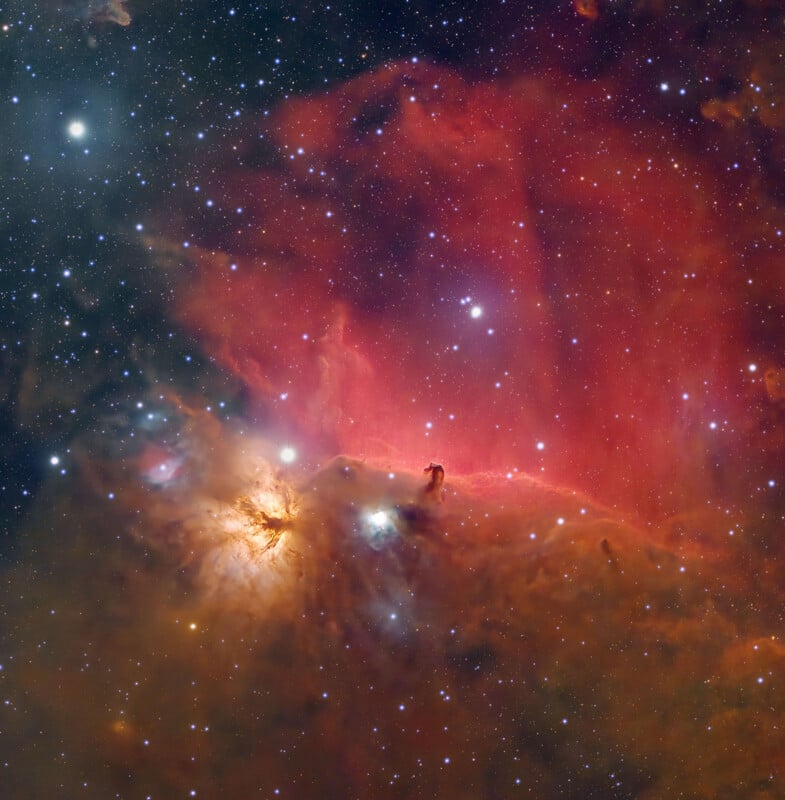![]()
Vaonis has announced the next-generation Vespera smart telescope. The aptly named Vespera II includes significant upgrades, including a longer focal length, higher resolution, and more expansive internal storage.
It’s a good time for easy-to-use, automated telescopes, as Unistellar unveiled its new Odyssey and Odyssey Pro smart telescopes yesterday at CES. Not to be outdone, competitor Vaonis showed off the Vespera II today. “Vespera II embodies the seamless fusion of a camera and a telescope, condensed in an all-in-one, user-friendly portable device, allowing anyone to connect with the stars,” Vaonis explains.

The smart telescope enables users to easily perform live observations and capture “stunning photos of the Universe.” With specially developed algorithms, the new Vespera II and the existing Vespera Pro can do mosaic images, which capture images over an extended period, resulting in better detail and less noise.
Beyond this fancy live stacking feature, Vespera II also offers automatic pointing and tracking, smartphone and tablet control with an accompanying app, an object library with more than 4,300 celestial bodies, observation programming, RAW image file capture, and an expert mode with astrophotography controls, and a longer 250mm focal length.
![]()
The telescope also works with optional CLS and dual-band filters that can help reduce the effects of light pollution and reveal additional details in nebulae. Vaonis also offers a solar filter, which users can attach to the Vespera II to perform solar observations during the day.
The Vespera II also has what Vaonis calls CovalENS, a panoramic image capture mode that expands the field of view and resolution beyond a single image. On the Vespera II, it delivers a 24-megapixel image, up from eight megapixels on the original Vespera. Using Vaonis’ Singularity app, the CovalENS process is entirely automatic. Users simply select a target, adjust the framing and orientation on the app, and the telescope does the rest, producing the larger, higher-resolution image with a broader field of view of the night sky.

Additional automation in the telescope includes automatic rejection of “bad images” and automated image stacking on “good ones” to enhance the look of photos in real-time. Vaonis’ telescopes, including the Vespera II, also include automatic focus, even during observations. The telescope saves images to 25GB of internal storage, up from 10GB on the original Vespera.

As for the image sensor, the telescope includes a Sony IMX585 sensor. The 8.3-megapixel image sensor has a 2.9-micron pixel size and is a relatively common sensor in astronomy equipment. For example, the Uranus-C color camera by Player One Astronomy sports this same sensor. The image sensor is a Type 1/1.2 chip, meaning that it’s 11.2 x 6.3 millimeters.

Paired with the sensor, the 250mm f/5 quadruplet apochromatic lens promises extra-low dispersion thanks to its lanthanum glass. It includes a field corrector to ensure strong image quality across the entire frame. The original Vespera lacks this field corrector and has a shorter 200mm focal length.
The Vaonis Vespera II smart telescope is available to order for $1,590. It does not include a tripod. Vaonis sells a short (18.5 centimeter) tripod for $100 and a slightly taller adjustable version for $149, but the Vespera II includes a standard 3/8-inch thread and can be mounted on other tripods. The telescope also requires a charger and cable, which are sold separately. The Vespera II will begin shipping on January 15. Add-on filters range from $149 to $399.
Image credits: Vaonis
